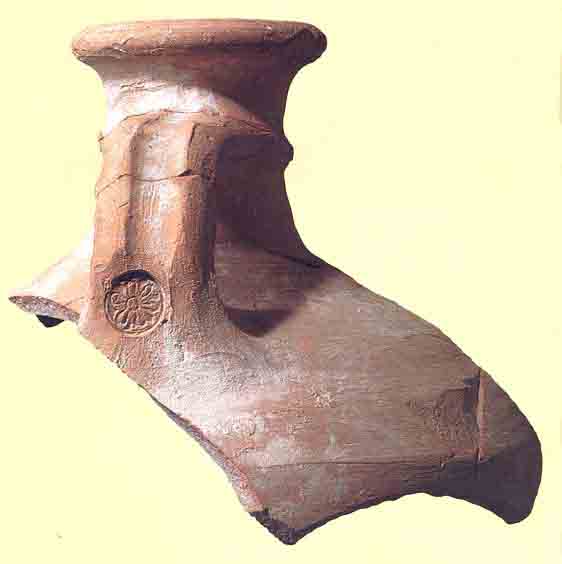Image Details

Zev Radovan
Mark of royalty. A rosette stamped on the handle of a wine decanter fragment indicates that it was the property of an important figure, perhaps an official who served one of the last kings of Judah. Discovered during Yigal Shiloh’s excavations of the City of David, the first inhabited section in Jerusalem, the fragment dates to the late seventh or early sixth century B.C.E., when Jehoiakim, Jehoiachin and Zedekiah ruled Judah. Part of a decanter that stood about a foot high, the fragment was found in pieces on the floor of a cubicle attached to the house of a prominent family, called the House of Ahiel (see photograph after an inscription found in it.
About 250 other rosette-stamped handles have been found, but only 2 belong to wine decanters. The rest were found on ovoid storage jars. One of these storage jars, with rosettes stamped on two of its opposing handles, was recovered from a storeroom next to the House of Ahiel (see photograph). The rosette-stamped storage jars resemble earlier jars bearing a better-known royal stamp: the inscription lmlk, meaning “belonging to the king.”
The prominence of the rosette-stamped decanter’s discovery site, and the presence of a rosette-stamped storage jar similar in shape to the earlier lmlk jars, are two reasons why author Jane Cahill believes the rosette was a mark of royalty in Judah.
